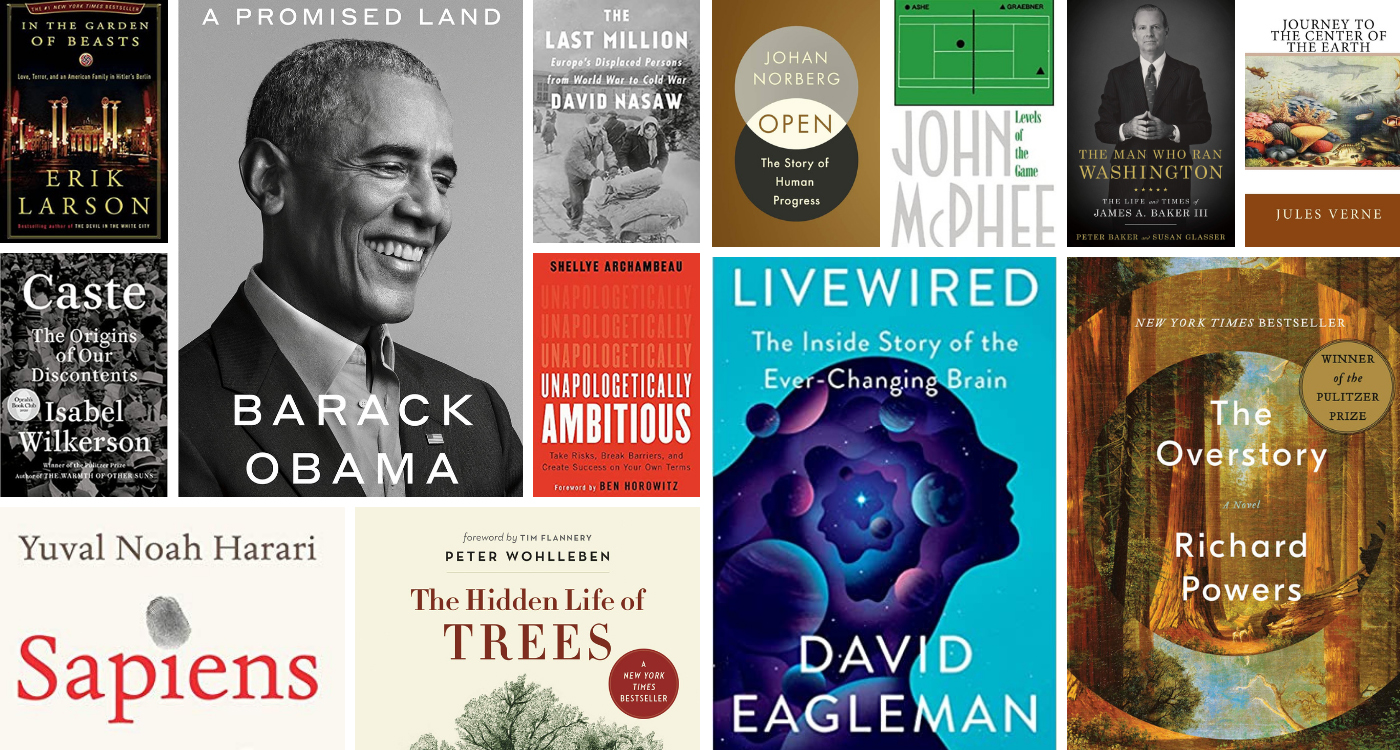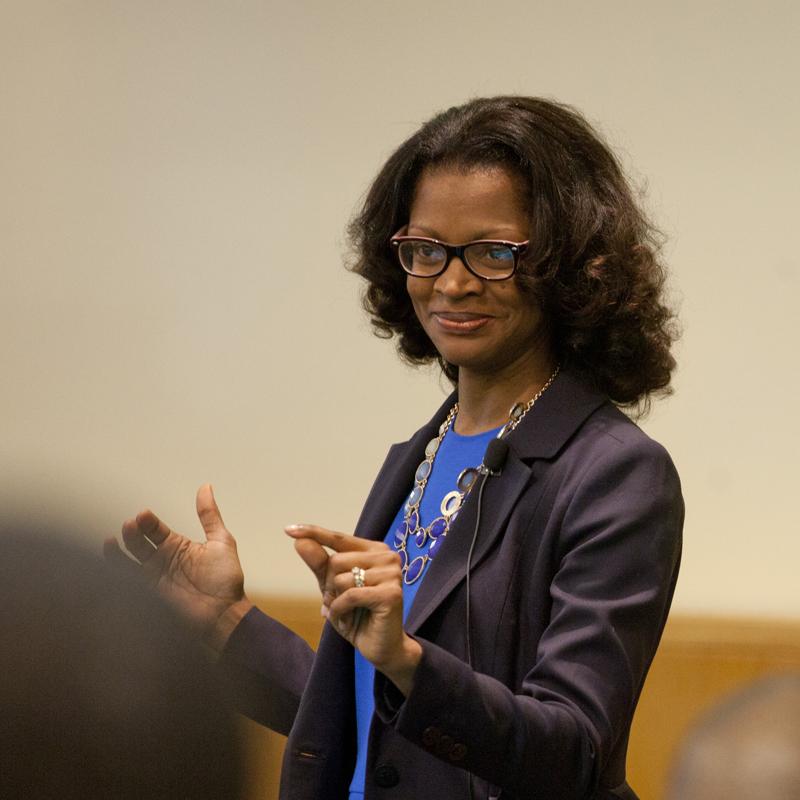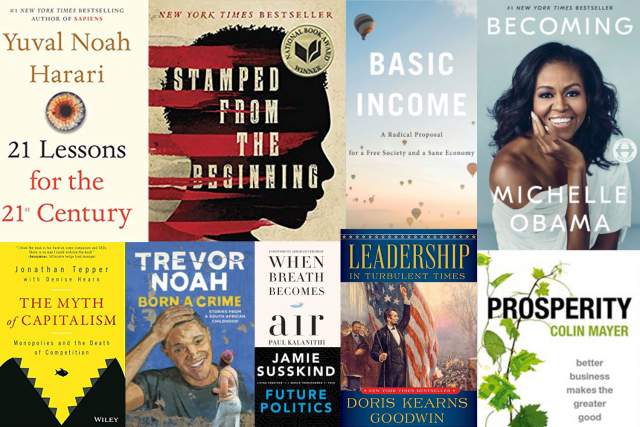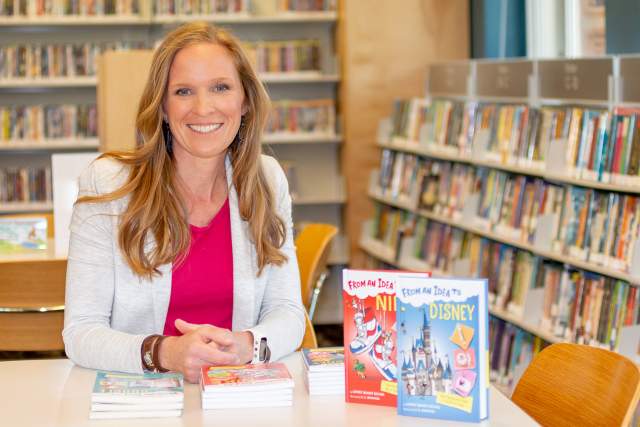What We’re Reading at Tuck
Ten professors at the Tuck School share their must-reads for 2021.

Now that we’ve turned the page on 2020, you may be finding some extra time to explore new topics and dive into a good book. So we asked ten of our business school professors what they added to their own bookshelves this year. Whether you’re interested in tennis or trees, politics or progress, here are a few must-read titles from Tuck faculty.

"One silver lining of the pandemic has been the opportunity to spend more time walking in the woods. Inspired by my forest wanderings, I finally read Overstory, by Richard Powers, which lives up to the many accolades it’s received. As a follow-up, I’ll suggest The Hidden Life of Trees, by Peter Wohlleben, which was recommended to me by a T’19 during a recent Zoom reunion. Wohlleben offers a poetic take on the science of trees, which is mesmerizing and thoroughly delightful. Amidst the chaos and disruption of 2020, there's steadiness to be found by deepening our roots in the natural world."
Emily Blanchard
Associate Professor of Business Administration
"I’ve been reading The Last Million: Europe’s Displaced Persons from World War to Cold War, by David Nasaw. It is the little-known story of just how many people remained in Europe after WWII with no place to go, and how they managed to re-start their lives. The book documents concentration camp survivors who no longer had a home or a family to return to, as well as perpetrators of genocide, many of whom, ironically, were welcomed more readily to many countries, including the U.S."
Sydney Finkelstein
Steven Roth Professor of Management
" I’m reading Sapiens: A Brief History of Mankind, by Yuval Harari. It’s a fascinating history of the evolution of homo sapiens, which focuses on the evolution of societies, cognition, and the critical role that ‘imagined reality’ and ‘shared myths’ play in the history of human social organization."
Curtis Welling
Clinical Professor of Business

"I recently read A Promised Land, by Barack Obama. I chose this book because I felt that to understand where we are now, it’s crucial to have a detailed understanding of what we, as a country, have accomplished so far in this century. The details of recent history are often overshadowed by events from further in the past that have had more time to marinate with historians. Obama is also a fantastic writer whose prose is raw yet sparkles on the page, and his insights are particularly inspiring to me as a researcher and teacher. The book also underscores the importance of keeping track of one’s life, either through a diary or other means. Obama is clearly someone who continuously ruminates about his own beliefs and life circumstances."
Jordan Schoenfeld
Paul E. Raether T’73 Faculty Fellow
"I have just finished Livewired, by David Eagleman. It’s an excellent book about how the brain adapts after physical trauma and to new sources of stimulation. It has very inspiring medical case histories, including how people can adapt with only half of their brain and how the brain can rewire itself upon the loss of a limb or even eyesight to regain different senses with different stimuli from external devices as well as implanted sensors.
Another good book I just finished is In the Garden of the Beasts, by Erik Larson. This non-fiction book examines the experiences of the U.S. ambassador to Germany during the period of Hitler’s rise to power in the 1930s. It portrays how appeasement can help totalitarians achieve power. "
Gordon Phillips
Laurence F. Whittemore Professor & Faculty Director, Center for Private Equity and Venture Capital

"I’m reading Unapologetically Ambitious, by Shellye Archambeau. The author openly shares her journey to the C-suite in an authentic and personal way. There are many valuable lessons contained in this book for those who are just starting their careers, those who are mid-career contemplating a change or needing to advocate for themselves, and for those who are more senior and are looking for ways to increase their impact."
Gail Ayala Taylor
Clinical Professor of Business Administration; Research Scholar
"I just read Peter Baker and Susan Glasser's book: The Man Who Ran Washington: The Life and Times of James A. Baker III. Baker was perhaps the most significant unelected official in Washington since World War II—running two Presidential campaigns, serving as White House Chief of Staff twice, Secretary of State and Secretary of Treasury. In each position, he had a significant impact. At the White House, he was a pragmatic, non-ideological manager, earning the enmity of many of Reagan's conservative followers. At the Treasury Department, he led the negotiations for tax reform and the Plaza Accords to stabilize global currencies. At State, he led a United Nations coalition to liberate Kuwait from Iraq, managed US policy for the breakup of the Soviet Union and reunification of Germany.
While I am a Democrat, I admire James A. Baker III because he worked on a bipartisan basis, supported global coalitions and brought humor and humility to the role. I was privileged to host a podcast with him earlier this year on the subject of Presidential Transitions. He is 90 years old and just beat COVID-19. "
David Marchick
Adjunct Professor; COO, U.S. International Development Finance Corporation
"I just finished Open: The Story of Human Progress, by Johan Norberg. The author makes a convincing case that successful societies are those that are open to new ideas and ways of doing things, and that unsuccessful societies close themselves off from new ideas. "
Richard Sansing
Noble Foundation Professor of Accounting

"I am reading Levels of the Game, by John McPhee, an old book about tennis and Arthur Ashe. I love sports and I love John McPhee. His writing is clear, concise and engaging, and has an incredible eye for detail. I enjoy learning about the world through his eyes whatever the topic, but I particularly enjoy his books on sports. One of my all-time favorites is A Sense of Where You Are, his profile of Bill Bradley, who at the time was a star college basketball player and later became a Rhodes Scholar, NBA player and U.S. Senator.
I am also reading Journey to the Center of the Earth, by Jules Verne, with my son. He enjoys adventure stories and I enjoy reading him classics that grow his brain. A further bonus is that I never read this one when I was younger. "
Brian Melzer
Associate Professor of Business Administration
"The book I am selecting is Caste, by Isabel Wilkerson. I love this book, especially in the current state of affairs in our country. Wilkerson is an amazing writer. She begins her discussion using the analogy of ancient pathogens being released in Arctic Circle to the presence of white supremacy in this country. Don’t ask me how she thought of this approach, but I assure it works. This is so much more than a book on racism because it expands our knowledge of 'human divisions.'"

